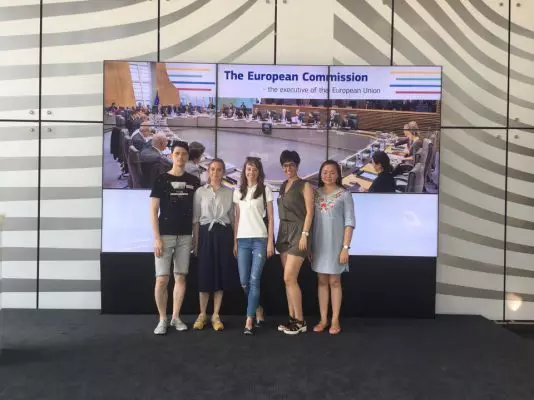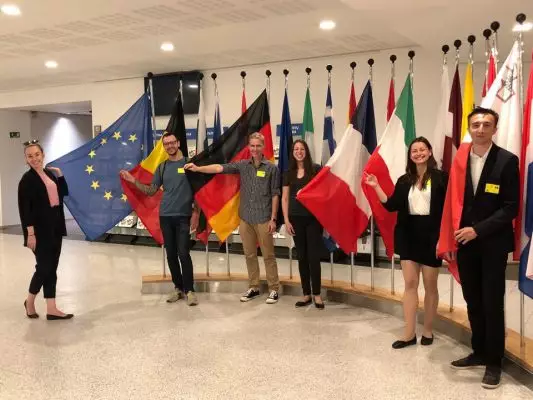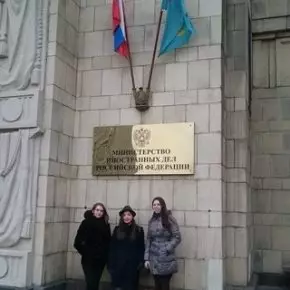General Information
The Caspian Higher School of Interpreting and Translation (CITS) is a structural unit of Astrakhan State University that trains Masters of linguistics within the programs “Theory of Interpreting and Translation. Intercultural and Interlingual Communication” (Master’s degree in interpreting) and “Theory and Practice of Translation in Professional Communication” (Master’s degree in translation).
CITS is a unique platform that draws together the knowledge and experience of interpreters and translators from Astrakhan Region, the Directorate-General for Interpretation of the European Commission (DG SCIC), Directorate-General for Logistics and Interpretation for Conferences of the European Parliament (DG LINC), United Nations, World Intellectual Property Organization, Ministry of Foreign Affairs of the Russian Federation, Government of Astrakhan Region and other leading Russian and foreign organizations.
Cooperation with European institutions was initiated in July 2010, with a delegation from the European Commission and the European Parliament coming to Astrakhan to help Astrakhan State University launch a project on training interpreters and translators for international organizations.
The DG SCIC and DG LINC helped ASU establish cooperation with leading European translation and interpreting schools (Sorbonne, University of Geneva, universities of Vienna, Ljubljana, Istanbul, etc.), which help CITS to run educational programs according to the highest EU standards. Drawing up the curricula, the course authors were inspired and guided by the most prestigious MA programs in translation and interpreting.
With active participation and consultation assistance of the DG SCIC and DG LINC, a new unique conference interpreting lab was equipped and prepared for classes (it can be used both as a classroom and a conference room). The equipment is exactly the same as in the Brussels offices of the European Parliament and the European Commission, and in the best universities worldwide (Televic, Belgium).
The School has trained a lot of top-class interpreters and translators, established cooperation with large organizations and foreign universities, won several foreign grants, initiated a number of academic projects of Caspian and international importance, and keeps on moving forward.
CITS is a platform for promoting and developing linguistic inclusion in Astrakhan Region, establishing an inclusive environment and ensuring equal access to information for all people in our region.
The Caspian Higher School of Interpreting and Translation focuses on the Caspian region languages. Astrakhan Region has traditionally had close ties with its Caspian neighbors, and nowadays these ties are developing dynamically. Therefore, it is important that ASU has become a center for training experts proficient in Persian, Azeri and Kazakh.
The CITS team are young, active, enthusiastic professionals who are always in step with the times and ahead of the trends!





